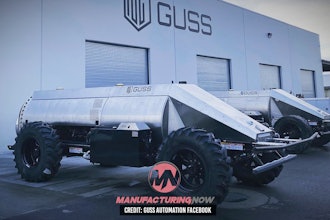This might come as a surprise to some of you, but SpaceX is not the only name in privatized space launching services. For example, Long Beach, CA-based Rocket Lab has had 25 successful launches since 2017, and deployed over 100 satellites into orbit for clients that include NASA, DARPA and Canon.
While their scale is smaller than the aforementioned competitor, their focus on innovation is definitely amongst industry leaders. Not only is this evidenced by their Electron rocket, which is described as the only reusable orbital-class small rocket currently in use, but by a recent announcement on how they intend to recover said rocket after its next launch.
The “There and Back Again” mission is scheduled to take place within a 14-day launch window that begins April 19. After launching from their Mahia Peninsula launch complex in New Zealand, the company will attempt a mid-air helicopter capture of the Electron launch vehicle for the first time.
After deploying a payload comprised of satellites, as well as propulsion systems and power generators for satellites, Rocket Lab will employ a customized Sikorsky S-92 helicopter with a large twin engine to capture the returning rocket stage as it returns from space.
Approximately an hour prior to lift-off, the helicopter will move into position about 150 nautical miles off New Zealand’s coast. At two-and-a-half minutes after lift-off, Electron’s first and second stages will separate, per the standard mission protocol.
Electron’s second stage will continue into orbit to deploy the payload, while the first stage will begin its descent back to Earth. As it falls, it will reach speeds of over 5,000 mph and temperatures exceeding 4,000 degrees Fahrenheit.
After deploying a parachute at 8.3 miles altitude, the main parachute will be extracted at around 3.7 miles in slowing the descent to 22 mph. As the stage enters the capture zone, the helicopter, via a specially-designed hook, will look to snag the parachute and secure the rocket.
According to Rocket Lab founder and CEO, Peter Beck, “We’ve conducted many successful helicopter captures with replica stages, carried out extensive parachute tests, and successfully recovered Electron’s first stage from the ocean during our 16th, 20th, and 22nd missions. Now it’s time to put it all together for the first time and pluck Electron from the skies.”






















